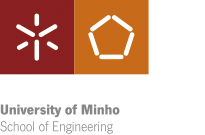The WSQ arose within the scope of a Master’s degree in Engineering and Quality Management at the EEUM, and the challenge was first presented to one of the students of this programme, Catarina Cubo. The current team of researchers identified the need to develop this project as “in quality, there was no scoreboard to characterise the level of quality of each country, in contrast to what happens, for example, for innovation, entrepreneurship and competitiveness”, Paulo Sampaio, project coordinator, Vice-Dean of the EEUM and also professor of the DPS explains.
The initial aim of the WSQ was to apply this project only to European Union countries. Therefore, the team defined that the pilot project – the European Quality Scoreboard – would be develop in the European context, because this would is a more controllable scenario, with available and reliable data. The challenge now is to expand the scoreboard worldwide. “In this second stage, the goal is to identify a set of countries worldwide, for which we have indicators that can be used. At a later stage, and for indicators that did not have global applicability, it would be necessary to define new ones in the same dimension and transversal to the countries we are analysing”, Paulo Sampaio highlights.
For this project, the researchers defined three levels where quality can be measured: micro quality – which is related to the individual, the quality professional itself; the meso quality – where organisations are included; and the macro quality at the countries’ level, which is precisely where the WSQ is focused. To Paulo Sampaio, “the main output of this project is – on the basis of the produced analysis – to influence and help quality entities and organisations to in turn assist national governments to define their own quality policies”.
The WSQ will have an annual publication, where the evolution of the countries on their way to quality will be analysed. The research team predicts the conclusion of this worldwide report by the end of 2017. Paulo Sampaio has no doubt that the University of Minho and the EEUM have been drawing a very interesting path in the area of quality: “We are the only University and School in the country with a research group in the area of Quality and Organisational Excellence. This project is another contribution to the affirmation of the EEUM in the area of quality, both national and internationally”, he ensures.
Still without funding, the researchers’ team is now looking for an international sponsor to manage the resources in order to maintain the project’s continuity.

